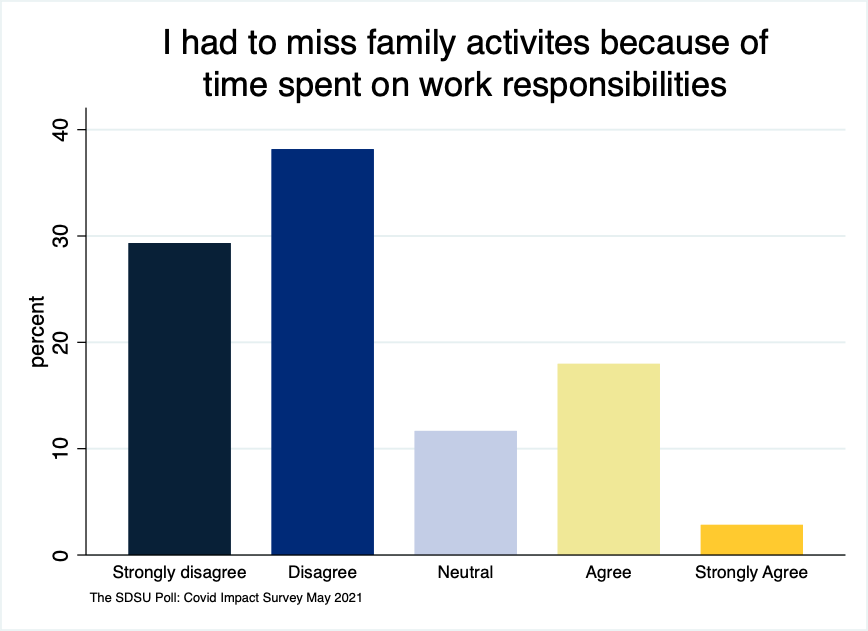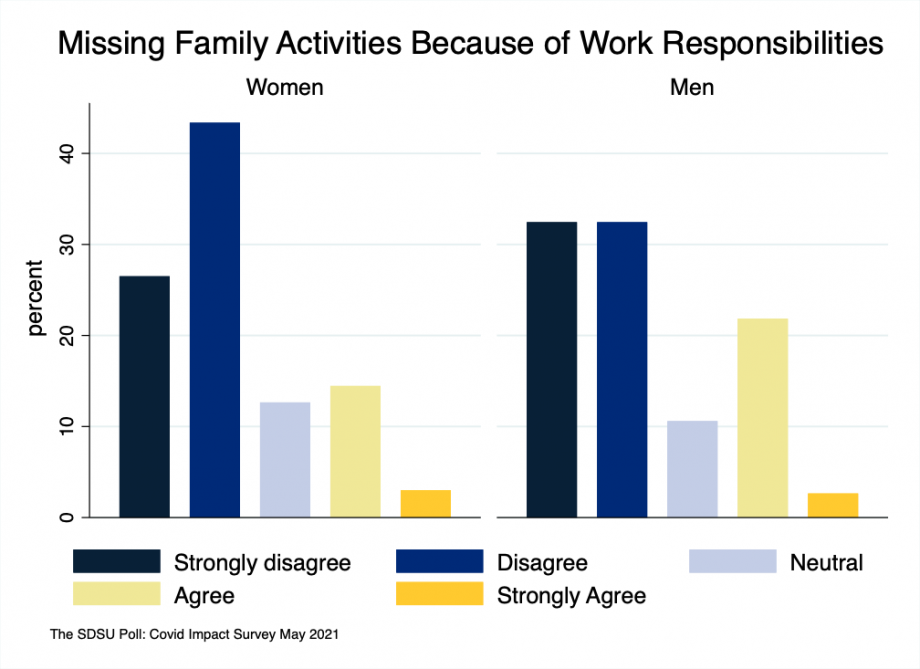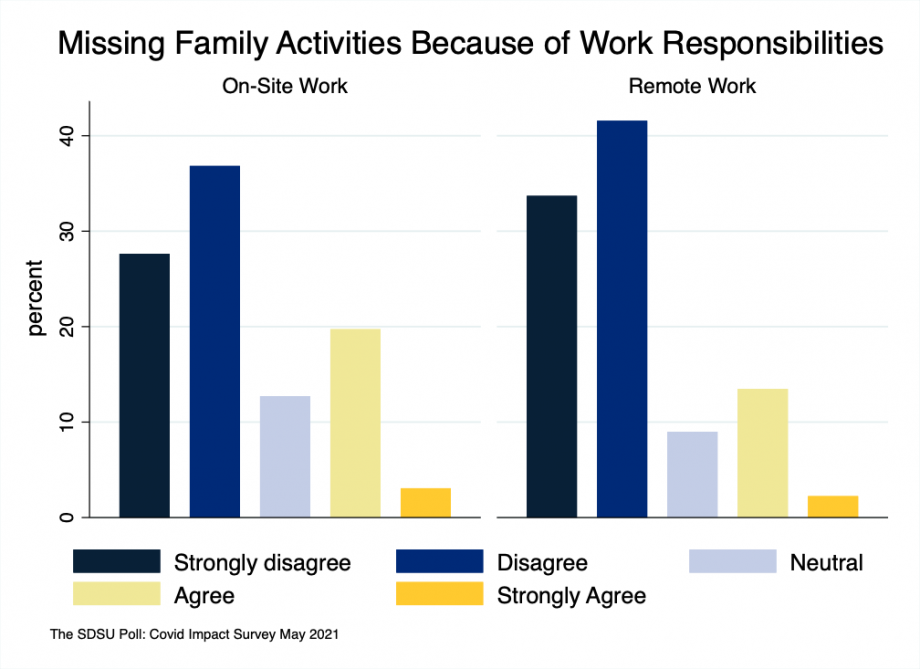The South Dakota COVID-19 Impact Survey May 2021 was conducted from May 14 to 23, 2021 by The South Dakota Polling Project, a research group housed in the School of American and Global Studies at South Dakota State University. Participants from The South Dakota COVID-19 Impact Survey were invited to share their thoughts on the impact of the COVID-19 pandemic on their work-life balance. A total of 324 fully-employed South Dakotans over the age of 55 responded to the invitation and completed the survey. The margin of error of this survey was +/- 4 %, on par with other state-wide polls.
In the previous press releases, we looked at the impact of the pandemic on the job satisfaction as well as feelings of burnout among older South Dakota employees. Today, we turn to the issue of family work-life balance. Maintaining a healthy work-life balance is challenging even under regular circumstances. The COVID-19 pandemic led to greater pressure on employees, which may have created work-family conflict. As a part of our survey, we examined to what extent our respondents felt that their work prevented them from spending time with their families during the last year. Of the older employees we surveyed, 21% indicated that during the past year work responsibilities led them to miss attending family activities.

As with the other issues we have examined, we can also observe differences between men and women when it comes to the impact of the pandemic on the employees’ work-family balance. The results show that the effect of the pandemic was more severe on male employees, 25% reported work responsibilities led them to miss attending family activities. This number was lower for women, where 17% reported an adverse effect of the pandemic on their family-work balance. As we noted in our earlier press releases, older women might not have as many caregiving/household responsibilities as younger employees, and older men might have more physically demanding jobs than older women, which might account for the higher work-family conflict in men.

Our results also show the extent to which the pandemic affected the work-life balance of employees depends some on their work location. We find that the employees who worked on-site during the last year were affected to a greater extent. Of those working on-site, 23% reported work responsibilities led them to miss attending family activities during the past year, compared to only 16% of employees who work at home. This might be linked to the fact that remote work has a host of advantages for employees, such as flexible schedule, less commuting stresses, cost saving and more time with family, all of which serve to strike a better work-life balance.

Overall, the impact of the COVID-19 pandemic has been far-reaching and touched upon all aspects of life. Among other things, the pandemic led to employment uncertainty and introduced novel stressors for employees in South Dakota. One group that has been particularly impacted by the pandemic are employees over the age of 55. Given the fact that the workforce population is becoming older, this group plays an increasing role in the economy. As a part of our study, we looked at job satisfaction, burnout, and work-family balance of older South Dakotan employees. We hope that these findings will help organizations as well as decision-makers at the state level to develop interventions on how to keep this group of employees motivated to remain productive, as well as to develop interventions to support this group of employees that is likely to play a large role in the workforce in the coming years.
Contributors: Alper Kayaalp Ph.D., Filip Viskupic Ph.D. & David Wiltse Ph.D.
- Contact:
- Telephone number: 605-688-6795
Republishing
You may republish SDSU News Center articles for free, online or in print. Questions? Contact us at sdsu.news@sdstate.edu or 605-688-6161.

